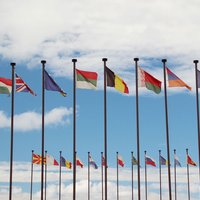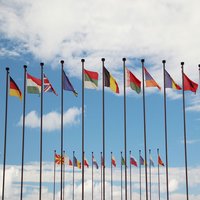Reconciling Climate Action and Human Rights
Peer reviewed article on the integration of human rights into the Paris Climate Agreement

Peer reviewed article on the integration of human rights into the Paris Climate Agreement

Climate protection measures can have a negative impact on the enjoyment of human rights. In consequence, after long discussions the Paris Climate Agreement became the first international environmental agreement to integrate a reference to human rights. Accordingly, the design and implementation of climate protection measures should consider not only reducing greenhouse gas emissions, but also respecting and promoting human rights. The agreement refers to the right to health, the rights of indigenous peoples and local communities, migrants, children, people with disabilities and people in socially vulnerable situations, the right to development and gender equality, the empowerment of women and intergenerational justice. The references to human rights in the Paris Climate Convention are groundbreaking in many respects and have consequences for all Parties. Success, however, depends to a large extent on how they ultimately affect the implementation of the Paris Agreement at local, national and international levels.
Sébastien Duyck und Erika Lennon, both senior attorneys for the Climate & Energy Program at Center for International Environmental Law, Wolfgang Obergassel, Project Co-ordinator in the Energy, Transport and Climate Policy Division at the Wuppertal Institute, and Annalisa Savaresi, lecturer for Law at the University of Stirling, have recently published their article "Human Rights and the Paris Agreement's Implementation Guidelines: Opportunities to Develop a Rights-based Approach", which examines the relationship between climate change and human rights. The team of authors begins by reflecting on the impact of climate policy on human rights to date. They then highlight five key aspects of how human rights can be taken into account in the implementation guidelines of the Paris Climate Agreement:
- Guidelines for Parties' nationally determind contributions (NDCs)
- Adaption Communication
- The Transparency Framework
- The Global Stocktake
- The mechanisms referred to in Article 6.
Since climate change protection measures particularly affect the rights of the most vulnerable, the development of a rights-based approach to climate action, developed by the authors, is crucial. The Implementation Guidelines are the first test of the commitment of the Parties to the Paris Agreement to greater, better and fairer international cooperation on climate change.
The complete article was published by the Carbon & Climate Law Review (CCLR) and is available in the following link.
